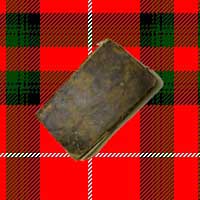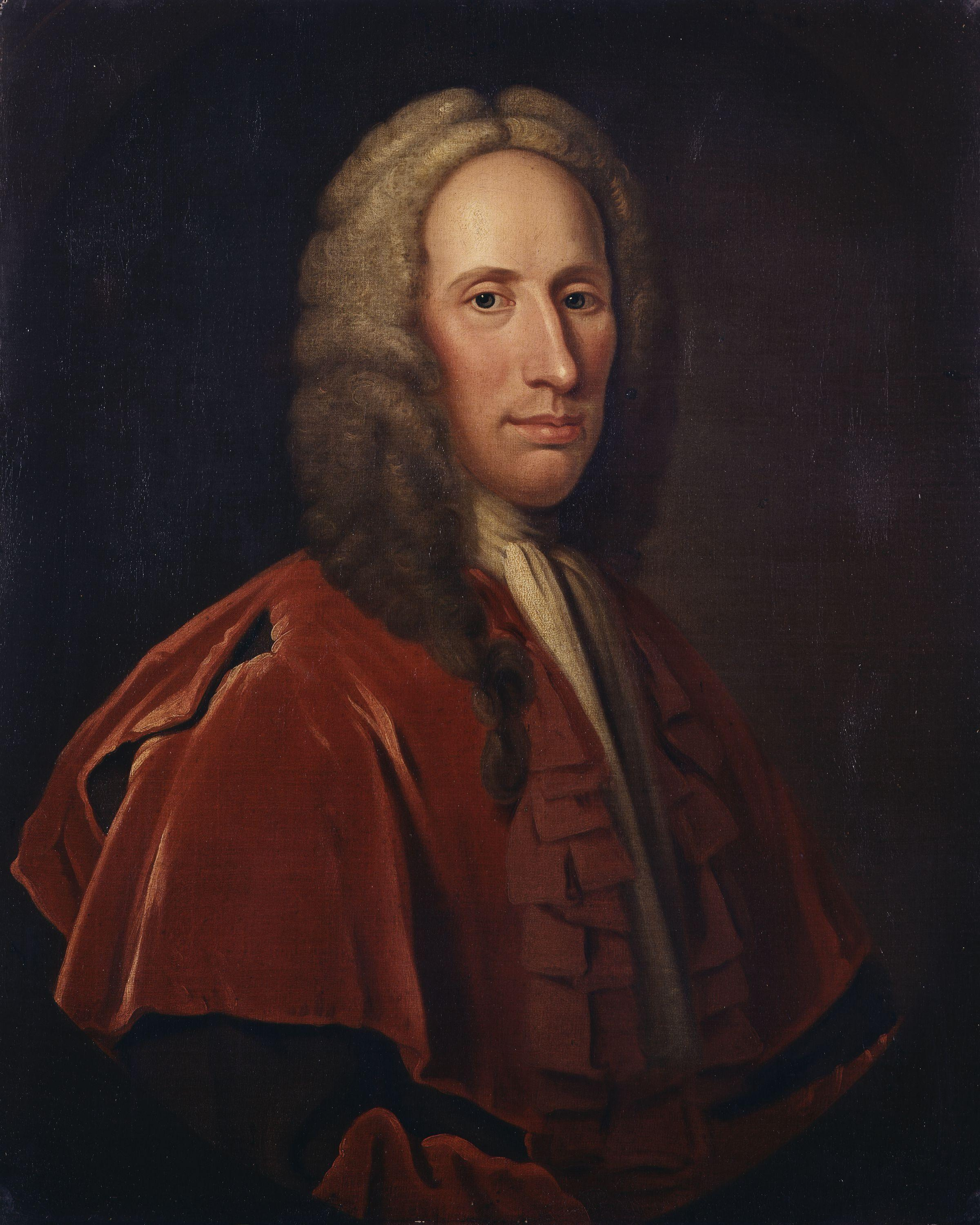
home
|
Lord President of the Court of Session |
LORD PRESIDENT DUNCAN FORBES. Born 1685. Died December 10th, 1747. The Forbe's family were well known for their hospitality (Lives of Simon lord Lovat, and Duncan Forbes, of Culloden page 297). "When in the north he would have to do duty side by side with his brother the Laird, whose feats in this department of human exertion were so distinguished even in that age, that he was honoured with the name of Bumper John, to distinguish him from all other Lairds of Culloden. Of the method of life at the Old Castle, we shall let Burt (Letters from the North, i., 139), brought up under the somewhat milder conviviality of English military life, speak: "There lives in our neighbourhood, at a house (or Castle) called Culloden, a gentleman whose hospitality is almost without bounds. It is the custom of that house, at the first visit or introduction, to take up your freedom, by cracking his nut (as he terms it,) that is a cocoa-shell, which holds a pint, filled with champagne, or such other sort of wine as you shall choose, you may guess by the introduction at the contents of the volume. Few go away sober at any time ; and for the greatest part of his guests, in the conclusion they cannot go at all. This he partly brings about by artfully proposing, after tie public healths (which always imply bumpers) such private ones, as he knows will pique the interest or inclinations of each particular person in the company, whose turn it is to take the lead, to begin it in a brimmer; and he himself being always cheerful, and sometimes saying good things, his guests soon lose their guard, and then I need say no more. For my own part I stipulated with him, upon the first ac- qnaintance, for the liberty of retiring when I thought convenient; and as perseverance was made a point of honour, that I might do it without reproach. As the company are disabled one after another, two servants, who are all the while in waiting, take up the invalids with short poles in their chairs, as they sit (if not fallen down) and carry them to their beds, and still the hero holds out. I remember one evening, an English officer, who has a good deal of humour, feigned himself drunk, and acted his part so naturally that it was difficult to distinguish it from reality; upon which, the servants were preparing to take him up, and carry him off. He let them alone till they had fixed the machine, and then raising himself up on his feet made them a sneering bow, and told them he believed there was no occasion for their assistance; whereupon one of them with a sang froid and a serious air, said, 'No matter, sir, we shall have you by and by.'—This Laird keeps a plentiful table and excellent wines of various sorts, and in great quantities, as indeed he ought, for I have often said, I thought there was as much wine spilt in his hall as would content a moderate family." The types of true hospitality in a Scottish farmer's house of old, were said to be an anker of whiskey always on the spiggot, a boiler with perpetual hot water, and a cask of sugar with a spade in it. Cullodeu's hospitalities were of a more aristocratic order, and the custom of* the house was to prize off the top of each successive cask: of claret, and place it in the corner of the hall to be emptied in pailfulls. The massive hall table -which bore so many carouses, is still preserved as a venerated relic, and the deep saturation it has received from old libations of claret, prevent one from distinguishing the description of wood of which it was constructed. When Duncan was in the north, he appears generally to have lived at Bunchrew, and besides his participation in the jovialities of Culloden, he had occasional hospitalities to distribute in a peculiar circle of his own. Examining an old account, one of many which lie among more valuable papers, the items of several charges for claret bought in individual dozens, some at 16s. and some at 18s., show a sum of 40£ spent in this manner in the course of a month.
Thomson in his "Autumn" thus addresses him:— "Thee, Forbes ! too, whom every worth attends, Forbes was a man of extensive literary attainments, and wrote Some Thoughts concerning Religion and Reflections on the Sources of Incredulity in regard to Religion. His papers relating to the two Rebellions of 1715 and 1745 were collected and published under the name of " The Culloden Papers," in London, 1815. |
